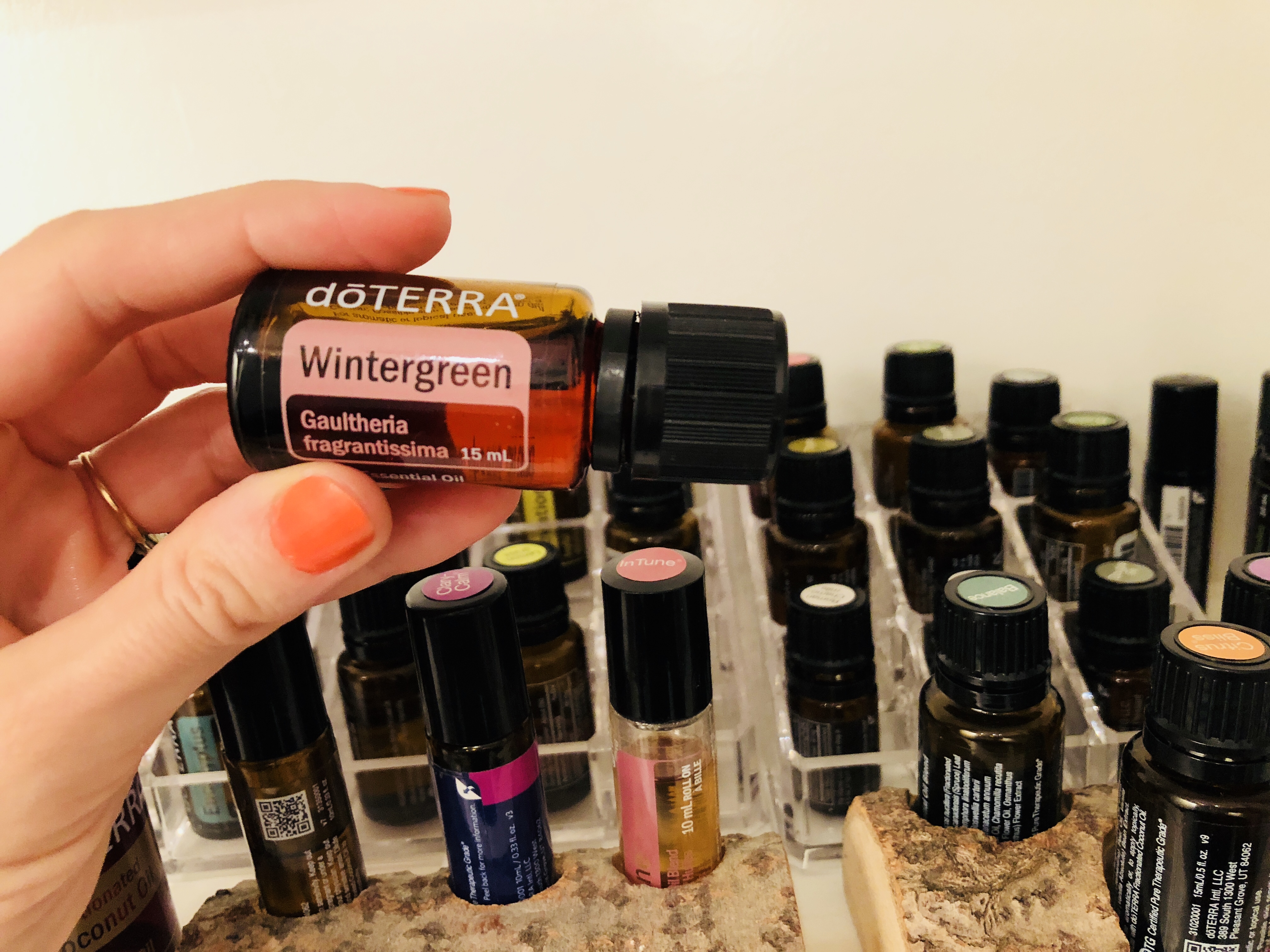
A 15 ml bottle of Wintergreen essential oil from doTERRA
Recently, CBC News published an article about a frustrated mom that posted about her child’s illness on Facebook and in return received a bunch of messages from “pushy” essential oil sales reps. She was apparently looking for “help and support”.
As an aromatherapy student (and PROUD “sales rep”), I feel some responsibility to defend my passion. The recent surge in popularity of essential oils has made it a popular target in health communities and the mainstream media alike. I’m not going to refute each point in this article but rather provide some overall perspective.
- Neither the Canadian Federation of Aromatherapy nor any certified aromatherapist was consulted in the writing of this article. Why aren’t we asking the opinion of a trained expert in this field?
- Yes, Wintergreen essential oil can lead to toxicity when used incorrectly. It is particularly high in a chemical compound from the salicylates family, just like aspirin and some topical muscle creams. Here’s a great article with more information. Most people likely don’t even need to have this essential oil on-hand, as there are a lot of other effective options out there, and some aromatherapists even avoid it completely. I’ve actually never used mine!
- All health products, whether “conventional” or “alternative” are backed by profit-seeking corporations and promoted through sales people and/or various forms of advertising. I honestly don’t see this as a legitimate argument at all. At the end of the day, we all buy from those we like and trust. This woman might not like the product or approach — but to each their own.
Lately, I’ve been struggling with completing my aromatherapy studies but this article hit a few nerves. I’ll dive in on this topic in a separate blog post but I will say that, after reading this, I made some HUGE progress on my assignments.
Now excuse me while I go breathe in some peppermint essential oil 😉
M.






